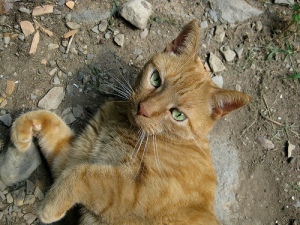-
Join 2,925 other subscribers
-
Recent Posts
- © Loretta F. Ross and The Praying LIfe, 2009 - 2013. Unauthorized use and/or duplication of this material without express and written permission from this blog’s author and/or owner is strictly prohibited. Excerpts and links may be used, provided that full and clear credit is given to Loretta F. Ross and The Praying LIfe with appropriate and specific direction to the original content.
Follow Us
- Follow The Praying Life on WordPress.com
Mudbabes and Humility
A lot about being Christian has to do with coming down where we ought to be and staying there. Here four-legged critters might have an advantage. Any significant brush with the holy can leave us reeling and unsteady with a tendency for
This entry was posted in Lent, Spiritual Formation, Spiritual Practices and tagged humility, Jesus, lenten devotion, mud. Bookmark the permalink.






I am touched by your blog! I’ll return.
Mary
Thanks, Mary. I look forward to your return. Best wishes and peace!
I reread this post. It captures my heart. I loved the following:
A lot about being Christian has to do with coming down where we ought to be and staying there. Here four-legged critters might have an advantage. Any significant brush with the holy can leave us reeling and unsteady with a tendency forgrandiosity and fanaticism. This is why the more one prays, the more one needs to go around barefoot, sit down, lie down, stretch down upon the earth, and stay in close touch with brothers and sisters who crawl, gallop, trot, and slither.
So true.
God bless you,
Mary